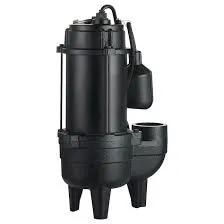Ukrainian
- Afrikaans
- Albanian
- Amharic
- Arabic
- Armenian
- Azerbaijani
- Basque
- Belarusian
- Bengali
- Bosnian
- Bulgarian
- Catalan
- Cebuano
- Corsican
- Croatian
- Czech
- Danish
- Dutch
- English
- Esperanto
- Estonian
- Finnish
- French
- Frisian
- Galician
- Georgian
- German
- Greek
- Gujarati
- Haitian Creole
- hausa
- hawaiian
- Hebrew
- Hindi
- Miao
- Hungarian
- Icelandic
- igbo
- Indonesian
- irish
- Italian
- Japanese
- Javanese
- Kannada
- kazakh
- Khmer
- Rwandese
- Korean
- Kurdish
- Kyrgyz
- Lao
- Latin
- Latvian
- Lithuanian
- Luxembourgish
- Macedonian
- Malgashi
- Malay
- Malayalam
- Maltese
- Maori
- Marathi
- Mongolian
- Myanmar
- Nepali
- Norwegian
- Norwegian
- Occitan
- Pashto
- Persian
- Polish
- Portuguese
- Punjabi
- Romanian
- Russian
- Samoan
- Scottish Gaelic
- Serbian
- Sesotho
- Shona
- Sindhi
- Sinhala
- Slovak
- Slovenian
- Somali
- Spanish
- Sundanese
- Swahili
- Swedish
- Tagalog
- Tajik
- Tamil
- Tatar
- Telugu
- Thai
- Turkish
- Turkmen
- Ukrainian
- Urdu
- Uighur
- Uzbek
- Vietnamese
- Welsh
- Bantu
- Yiddish
- Yoruba
- Zulu
Telephone: +86 13120555503
Email: frank@cypump.com
Сер . 09, 2024 03:00 Back to list
Exploring the Efficiency and Applications of Chemical Pumps in Industrial Processes and Operations
Understanding Chemical Pumps The Backbone of the Chemical Industry
Chemical pumps are essential tools in various industries, particularly in the chemical sector where the transport of aggressive and corrosive fluids is a routine necessity. These pumps play a crucial role in the safe and efficient movement of chemicals, which are often hazardous and require specialized handling. Understanding the different types of chemical pumps, their construction, and applications is vital for enhancing operational efficiency and ensuring safety in industrial processes.
Types of Chemical Pumps
There are several types of chemical pumps designed to meet the specific needs of handling various substances. The most common types include
1. Centrifugal Pumps These pumps are widely used in the chemical industry due to their ability to handle large volumes of liquids. They operate by converting rotational energy, usually from an impeller, into the kinetic energy of the fluid. Centrifugal pumps are ideal for low-viscosity fluids and provide continuous flow. However, they may not be suitable for very viscous or high-temperature fluids.
2. Positive Displacement Pumps Unlike centrifugal pumps, positive displacement pumps move fluid by trapping a fixed amount of fluid and forcing it into the discharge pipe. This category includes gear pumps, diaphragm pumps, and peristaltic pumps. They are particularly effective for handling viscous fluids and those with varying flow rates. Positive displacement pumps are known for their ability to maintain a consistent flow despite changes in pressure.
3. Magnetic Drive Pumps These pumps use magnetic fields to eliminate the need for mechanical seals, thereby minimizing the risk of leaks. This feature makes them particularly useful for transporting hazardous or volatile chemicals. As safety becomes increasingly pivotal in chemical processing, magnetic drive pumps are gaining popularity due to their leak-free operation.
Construction Materials
The materials used in the construction of chemical pumps are critical to their performance and longevity. Given the aggressive nature of many chemicals, pumps must be made from materials that can withstand corrosion, wear, and chemical damage. Common materials include
chemical pumps

- Stainless Steel Used for its corrosion resistance and strength, stainless steel is suitable for many applications but may not be ideal for very aggressive acids or solvents. - Plastic (PVC, PTFE) Ideal for transporting corrosive chemicals, these materials offer excellent resistance to chemical degradation but may lack the durability of metals under high pressures. - Ceramics and Composite Materials These are often utilized in specialized applications due to their outstanding resistance to wear and chemicals.
Applications
Chemical pumps are employed in a multitude of applications including
- Chemical Processing Transporting raw materials, intermediates, and final products in the manufacturing of chemicals, petrochemicals, and pharmaceuticals. - Water Treatment Handling chemicals used in treating wastewater and drinking water, such as chlorine and coagulants. - Food and Beverage Industry Used to move food additives and cleaning agents safely.
The choice of pump depends not only on the type of fluid being handled but also on factors like flow rate, viscosity, and pressure requirements.
Safety and Maintenance
Given the potential hazards associated with chemical pumps, safety is a paramount concern. Regular maintenance routines should be implemented to ensure pumps are functioning correctly and efficiently. This practice helps mitigate risks such as leaks or pump failure, which can lead to environmental and safety hazards.
In conclusion, chemical pumps are indispensable in the chemical industry, designed to efficiently and safely transport a variety of fluids. A thorough understanding of their types, materials, applications, and maintenance needs is essential for maximizing operational effectiveness and safety in chemical handling processes. As industries evolve, the technology and design of chemical pumps will continue to advance, catering to the increasing demands for safety and efficiency.
-
Horizontal Split Case Pump with GPT-4 Turbo | High Efficiency
NewsAug.01,2025
-
ISG Series Pipeline Pump - Chi Yuan Pumps | High Efficiency, Durable Design
NewsAug.01,2025
-
Advanced Flue Gas Desulfurization Pump with GPT-4 Turbo | Durable & Efficient
NewsJul.31,2025
-
ISG Series Vertical Pipeline Pump - Chi Yuan Pumps | Advanced Hydraulic Design&Durable Construction
NewsJul.31,2025
-
ISG Series Vertical Pipeline Pump - Chi Yuan Pumps | Energy Efficient & Low Noise
NewsJul.31,2025
-
pipeline pump - Chi Yuan Pumps Co., LTD.|High Efficiency&Low Noise
NewsJul.31,2025










